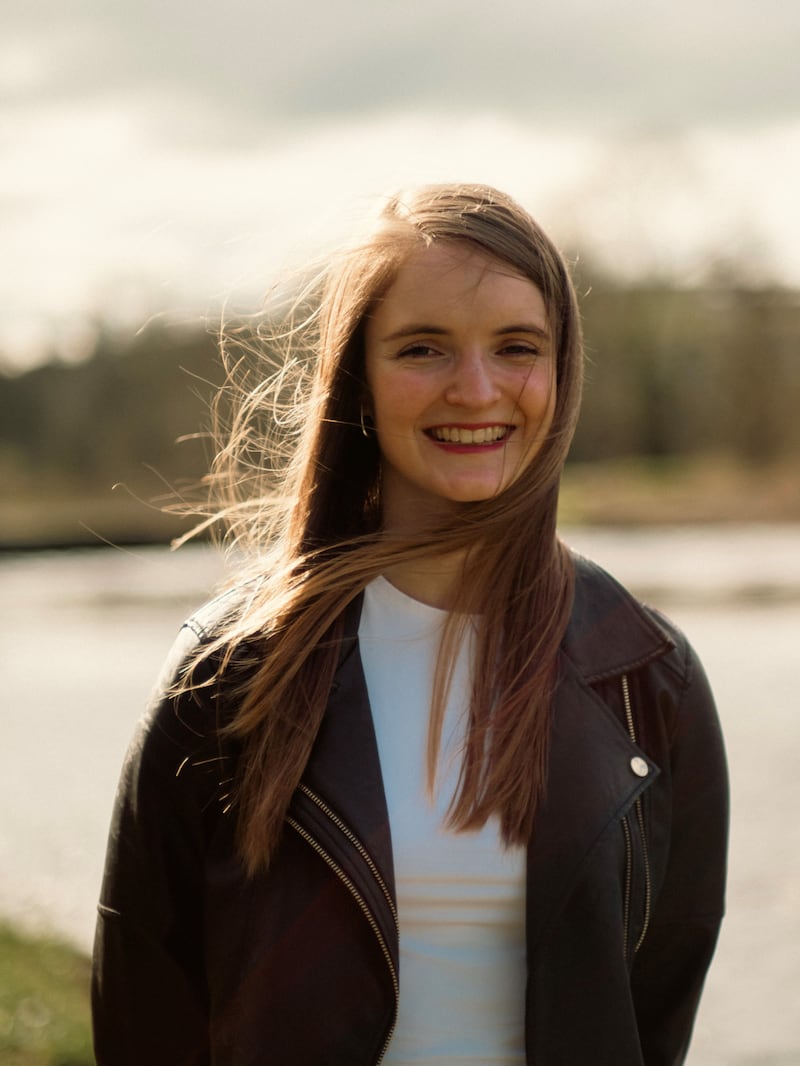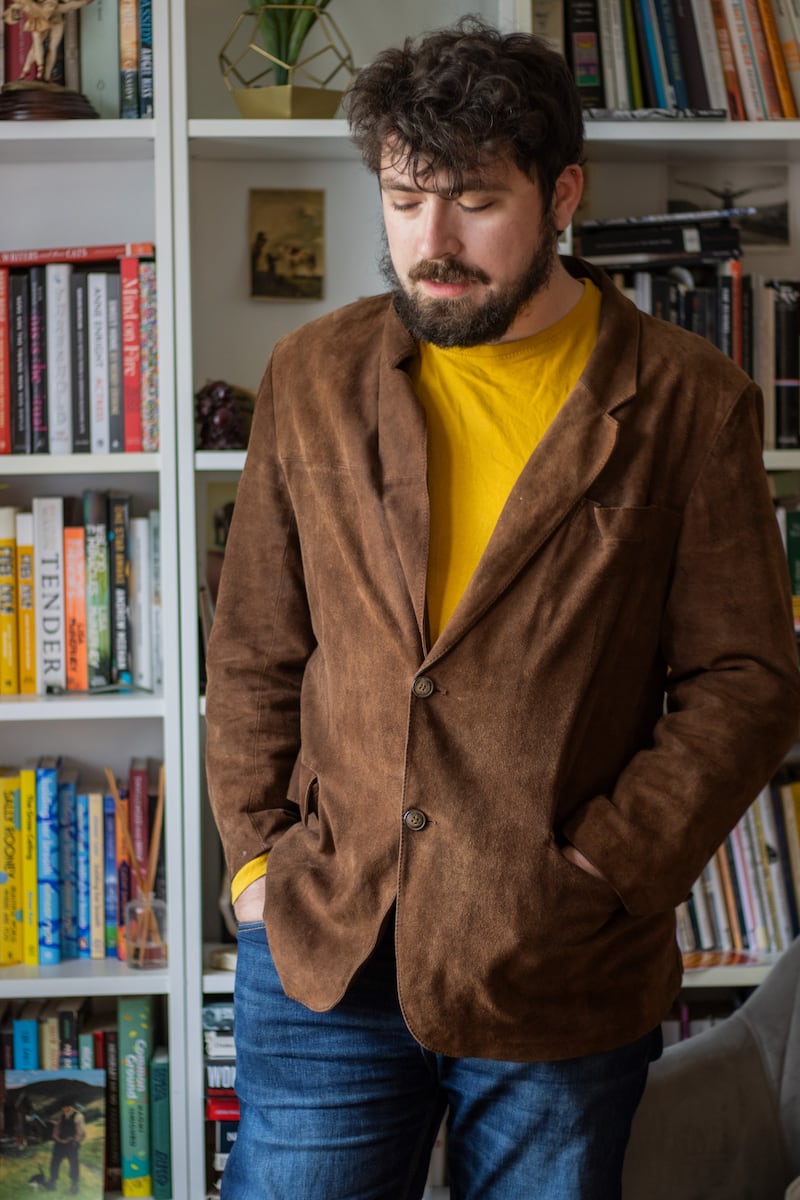New Arcana (Bloodaxe £12) is Jessica Traynor’s striking, ambitious elegy for an old school friend who died by suicide and speaks here through the persona of Lydia Deetz from Tim Burton’s Beetlejuice. Poems imagining a new Major Arcana are interwoven throughout the sometimes funny, always heartbreaking dialogue between Traynor and Lydia.
“i asked for it by wearing black. by wearing a veil/ (demon thirst trap) by hanging around/this older man. i swear he had charisma … someone has to mind the strays.” (i’m lydia deetz and all my friends are dead). The acute loneliness is palpable, “Oh borderlines … they drag everyone down with them./and I think, how can you drag me down/when you’re the one who left me behind?/The therapist is … talking about manipulation, the long empty barrow of your need.” (The drunk psychotherapist dooms you at the party).
Their teenage relish for the occult has become a dark prefiguring and yet a bolster for Traynor’s solitary journey to the underworld. The “marishes” of Ezekiel 47.11 (swamplands which cannot heal) are a key reference, representing a seemingly dead-end grief, “After dark,/you’ll find me … at the old Jewish cemetery./I’m deader than any of them/– thieves, thralls and hurlers./While my children sleep, Lydia,/this is where I go –” (The Marishes).
But this perished, stagnant place thaws near the end as Traynor gives birth and the marishes freshen into an exhilarating reimagining of Joyce’s Anna Livia Plurabelle, “the baby comes and elsewhere you go/i think of the sea hunched at clontarf/tides paused to let you both pass” (to you, one year on) thus earning New Arcana its dark yet buoyant, watery ending, “What does the cell know/as it swims in the Petri dish?/I know points of light, I know laughter./My flesh and my closest flesh/are laughing at you still” (On Halloween).
 Molly Twomey
Molly Twomey
Molly Twomey’s Chic to be Sad (Gallery €12.95) continues the incendiary style which distinguished her first collection Raised By Vultures. Recovery is never easy, and when the danger lies within basic sustenance it feels impossible at times, “‘I wish you didn’t have to eat,’/you said – that I could recover/without food.” (My body/severed).
The past is an active dominatrix in Twomey’s poems, painfully close, “its tongue against” her ear, “its thumbtacks on her back” in ‘When the past stops smacking … ’ “when all I want is to be alone/by the old gunpowder mill/with boygenius, a can of fizzy mango.”
Consumption in all its forms is key here, visceral frustration rising from tight angry poems where private battles clash swords in public arenas of consumerism, “Seven years in recovery./All I crave is a lit match/to throw at the grocery store.” And the most dramatic consumption here is the very real flames which consumed Twomey’s family. My Brother Facetimes to Show Me Our House On Fire, among other poems, throws the cyclical nature of the recovery a curve. It’s not just the past that dictates, contingency rules too. Twomey wonders if her post-surgery brother could “ … have woken …” “somehow” led their parents “to the side door/”. She watches his video “two buses away, choking on tofu,/watching fingers of smoke drag the scaffolding//of our childhood into dirt.”
Meanwhile as Ireland’s housing crisis means that “Every year the rent gets harder to afford”. (Lease), another lost home lives on in Twomey’s finest quietest poem, a sonnet named for the owner of that house, a cooling counterpoint for all that fire, “I took her softbacks,/sweaters with her name stitched into the neck,/Ann meaning due in Irish, that word/that keeps flickering on the bus sign.” (Ann).
 Alan Gillis
Alan Gillis
Dedicated to the late Michael Longley and reflecting Longley’s preoccupation with flora, music and rhyme, Alan Gillis’s Over Here (Gallery, €12.95) brims with wild flowers from the opening “Ruined greens, thistle-pokes” (Whin) to the “bittercress and wild carrot” of the final, Walking Out One Morning.
But Gillis’s voice is his own, threaded with a demotic which is particularly keen in North Street, “When the street smears my eyes, flinty and grim,/deeper rhythms of hither and yon assuage…:/the shops’ wafts of song, … So that’s sausage ’n beans, wi no beans, ’n extra sausage?”
The ground shifts constantly in these existential poems, “Deskwork lets me put/bread on the table, and it’s not/as if I’m chained to the desk/in my mind … I can be anywhere.” (The Desk). The surface of the desk can be contemplated closely, until “it becomes vast,/interdimensional/like outer space or how a coffin lid might be” and then cuts to a meadow – in what feels like a double exposure – humming “with unread//messages … wings of blue tits, furze spines, my insides like willowherb …”
Yet the coffin lid is a solid reminder of the deaths which haunt Over Here. Short, tight-lipped lines nail the stealth of Covid 19 in Virus, “Along Ravenswood Avenue … Glenvarloch – nothing approaches. Pull the blinds./No. 35. No soul stirs. 37. Night looms. 39.” First Epistle to David, dedicated to the poet David Wheatley, ponders a 21st century existential angst. Could Flann O’Brien’s atomic fusion theory in The Third Policeman explain why Gillis’s “head and backbone” might be 75 per cent smartphone? If Pat McCabe’s novel PogueMahone repeatedly asks, “Why do birds sing?” yet there is no answer, Gillis proposes: “Now we’re here it may well be our function/not to boo-hoo, but keep on, called upon/in view of the abysmal, to find the fol-/de-rol in things.”
 Dean Browne
Dean Browne
Dean Browne’s After Party (Picador, £12.99) is full of surprises like the “after party” which turns out to be where “our cherished stuff attends/when we’re gone”. A committed surrealist, Dean’s carpet bag of the past unloads in tight lines of half rhyme, “You inhale fathers/of tobacco-smoke from suede./Your foot snags on a dress/as though it pleaded –” (Shadow Box).
Clearly influenced by Charles Simic, the dedicatee of A Cigarette, he borrows Ciaran Carson’s description of a cigarette “‘a little rush of infinity’”, Carson’s ghost haunting the lines, “I couldn’t say where they are now, if still hooked/on the tonic blossom of that first sweet pull”.
But it is Matthew Sweeney who is the presiding figure, remembered exactly and musically in Pinball, “He liked the plink under his thumbs;/he talked bumpers, flippers, kickers”. And Browne’s voice has its own odd note which shines especially bright in his home ground of Tipperary where the surreal is rooted in the local.
[ New poetry: Ciaran Berry; Cherry Smyth; Afric McGlinchey; Ralf WebbOpens in new window ]
Scuttle begins strangely and beautifully with eight-year-old, dust-allergic Dean, “fingers smutty from Suttons Premium Polish Coal./In that bungalow/shadowed by mountain, things/clenched past function – ”. Striking juxtapositions of the abstract and concrete work at a deep metaphorical level, “Hand-me-down grudges./Where do you dispose of them,/old keys? One’s blue-green brass/with smoky thumb stain,/ chunky, no discernible fit/with anything begun since me.”
Local crowd scenes are conjured effortlessly, succinctly, “Local occasion commemorating/one or other of the helpless rabbits/history bloods its lurchers on./Laughing boy on dad’s shoulders,//mother withdrawn and scrolling” (Anniversary). Dean’s ear for dialogue is especially acute, driving the ludic, hilarious quatrain, It Cannot Be Salvaged, which stays in the mind like a tune, “Make me scrambled eggs, she never said./I will so, I said,/and never did.”
